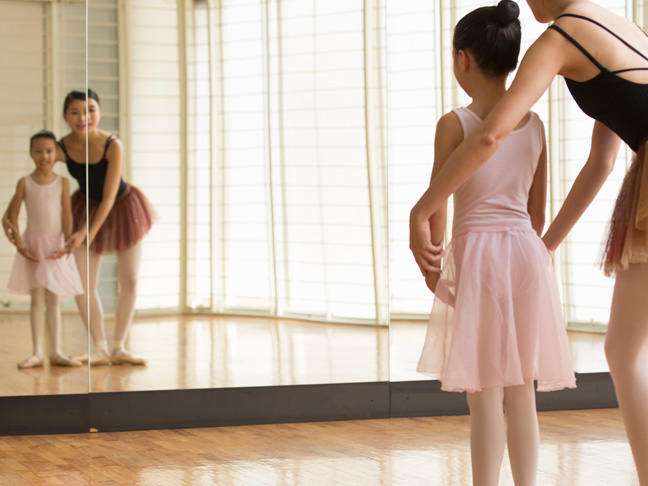My daughter is passionate about Irish dance. Really passionate. To be perfectly honest, I didn’t see it coming. She’s always been a bit of a floater, and a dreamer (like her mom), so while I expected her to enjoy Irish dance, I didn’t necessarily expect that she would, at age 8, set long-term goals centered on it. She is confident, strong, and happy when she laces up her shoes and steps on the dance floor. Her teacher understands her, draws her out of her protective layer, and praises her efforts. I’m grateful for it.
But a passion for Irish dance includes disappointment and facing failure. Some competitions are great, some are terrible and many are in between. Her goals are to become a champion and to dance at Worlds. She knows that those are future goals and that there is a lot of space to fill between now and then. What she is learning through this is the power of perseverance.
Grit is the new buzzword in parenting. Kids who have grit learn how to persevere to reach those long-term goals. They might or might not have extraordinary talent, but what they do have is the willingness to work hard and the guts to overcome pitfalls and obstacles along the way.
In her research, Angela Duckworth, psychology professor at the University of Pennsylvania, found that grit is actually a better predictor of success than IQ or other measures when it comes to achievement of long-term goals. Her research also showed that gritty individuals are, on average, more self-controlled than less gritty individuals.
So how do we raise kids with grit? How do we ensure that our children have the confidence and ability to work through the hard parts to reach those long-term goals? It takes time and patience, that’s for certain, and we have to begin by making room for mistakes. My daughter’s Irish dance teacher can often be heard saying some version of, “You will make a mistake today. Are you okay with that?” when teaching a new step. “Yes!” they yell out in unison, and they get down to the business of making mistakes.
Giving kids permission to fail out loud empowers them to work through their mistakes. A sign hangs in my daughter’s second grade classroom that reads, “Mistakes are expected, respected, and inspected.” In her classroom, mistakes are viewed as positive because they enable the students to find a better way to solve the problem or write the sentence. Mistakes teach kids to find their way.
Permission to fail only scratches the surface of raising gritty kids, though. We have to peel away the layers of the individual to help them find their inner grit. We have to empower them to set goals and work toward them — and that effort begins at home.
1. Help them find their passion. The single best thing we can do for our kids is help them find a passion. While that might sound simple, it can actually be quite difficult. For many parents, their goals and aspirations for their child cloud their ability to see what their child actually gravitates toward. I love watching my daughter play soccer, and I really loved coaching her team this season. But, if she decides to hang up her cleats and give up soccer to focus on dance or try something new, I will support her.
Not every child wants to play a team sport, learn an instrument, or perform in the school play. When we plug them into things because we see a hint of talent, we put them in a box. The message we send is: This is your thing. You do this. What we should be doing is talking to our children. We should ask them about their interests and help them figure out what makes them tick. We should give them opportunities to try different things and explore all of their interests to find something that truly inspires them.
2. Encourage them to take (healthy) risks. We are a generation of worriers, and that can slow our kids down. Almost every day after school, my daughter swings herself around a metal handrail on the quad, and almost every day another mom standing near her takes a sharp breath of fear. Yes, there is concrete under head and she could fall and get hurt in some way. Yes, I take a few deep breaths and smile while joking that it’s best not to watch. But I don’t stop her. She knows her strength and she knows that flipping around that handrail is risky, but she wants to do it anyway.
To stop every risk, big or small, is to send a message that we don’t trust our kids and that we don’t think are capable. That kind of message leads to complacency or, even worse, irrational fear in our children. It’s important to encourage healthy risk taking, whether that means speaking in front of the class for the first time or riding a skateboard down a hill. If we always tell them they can’t, they will stop trying. If we teach them to take a chance, they’ll learn to persevere.
3. Praise them for their actions and effort. Praise is a powerful parenting tool, but how you use it is important. If you only ever praise the end result (like winning a game, for example), you teach your children that a positive outcome is the only thing that matters. This can be a set-up for failure and avoidance. If winning (or earning an A+) is the only thing, then anything below that feels like a failure in the eyes of a child.
Praise works best when you praise actions and efforts. Instead of focusing on the score of the game or the winning shot, for example, praise the effort it took to play that game. “I loved the way you worked with your team to get the ball from one end of the field to the other,” for example, inspires confidence and hard work. It shows your child that you watched and noticed his hard work, not just the scoreboard.
Praising effort in school helps children internalize positive core beliefs: If they work hard and keep trying, they can overcome difficult problems. Instead of praising the letter on the page, take a good look at the work and praise the effort contained within the work. Better yet, ask your child to teach you what she learned.
Raising gritty kids doesn’t happen overnight. It takes time and patience. With a little passion, kids can learn that perseverance is far more inspiring than giving up.
Photo: Getty








